Human Rights Due Diligence and Corporate Boards: Reflections on European Commission Proposals Relating to Director Duties and Board Oversight
Last year, we highlighted why we believed human rights due diligence needed to be a mandated concern of corporate boards.
We cited disasters, such as the Brumadinho, Córrego de Feijão dam collapse in Brazil and the destruction of cultural heritage...
Why Labour Law Protections for Migrant Workers are at the Heart of the Dhaka Principles for Migration with Dignity - Reflections from the ILO
Throughout 2022, IHRB is marking ten years of the Dhaka Principles for Migration with Dignity with guest commentaries from representatives of business, trade unions, civil society organisations, and the UN system that reflect on the continuing...
28 February 2022 | Commentary
Commentary by Michelle Leighton, Chief Labour Migration, ILO
Why Fighting Discrimination is at the Heart of the Dhaka Principles for Migration with Dignity
Throughout 2022, IHRB will be marking ten years of the Dhaka Principles for Migration with Dignity with guest commentaries from representatives of business, trade unions, civil society organisations, and the UN system that reflect on the continuing...
17 January 2022 | Commentary
Commentary by Guna Subramaniam, Asia Regional Manager, Migrant Workers Programme, IHRB
A Year Since Covid – What Can Businesses Continue To Do?
In the year since the World Health Organisation declared the pandemic, 2.6 million people have died. On the day of the anniversary – 11th March 2021 – there were 118 million recorded cases, a figure that continues to rise by the hour, with more than...
17 March 2021 | Commentary
Commentary by Salil Tripathi, Senior Advisor, Global Issues, IHRB
Why Human Rights Due Diligence Must be a Mandated Concern of Corporate Boards
Last year Rio Tinto destroyed a 46,000 year old native cultural site at Juukan Gorge in Western Australia without the free, prior and informed consent of its owners – the Puutu Kunti Kurrama and Pinikara peoples. The company’s own internal...
Remembering David Petrasek
Before there were UN Guiding Principles on Business and Human Rights, there was a 184-page report, called Beyond Voluntarism, published in 2002 by the International Council on Human Rights Policy (ICHRP). That report said in clear language why we...
13 May 2020 | Commentary
Commentary by Salil Tripathi, Senior Advisor, Global Issues, IHRB
India’s Business & Human Rights National Action Plan
In December 2018, the Indian government initiated the process of developing a Business and Human Rights National Action Plan (NAP) by releasing a zero draft - with a commitment to publish the final NAP in 2020. The Indian Ministry of Corporate...
14 April 2020 | Commentary
Commentary by Namit Agarwal, Asia Public Policy Lead, World Benchmarking Alliance
Interview with Bill Godnick - 3 Simple Questions on Business and Human Rights
I met Salil Tripathi in the mid-2000s when we were both working in Colombia with oil and mining companies and NGOs on security and human rights frameworks in conflict zones. I found he was a person not easily defined as a man from the Global South...
Who is an “Essential Worker” in Times of Crisis?
There is a scene in Johan Renck’s highly acclaimed historical drama series, Chernobyl, when the Soviet authorities have to persuade 400 Russian and Ukrainian miners to risk their lives to prevent radioactive waste seeping into the water table and...
23 March 2020 | Commentary
Commentary by John Morrison, Chief Executive, IHRB Neill Wilkins, Head of Migrant Workers Programme, IHRB
Acting on India’s POSH Act
Workplace Sexual Harassment Law Needs Effective Implementation
For more than a year, India has been stunned by women journalists, students, actors, and other women professionals throughout the country who have gone public with accounts of sexual...
21 March 2019 | Commentary
Commentary by Anita Cheria, Director, OpenSpace
Migrant Worker Updates from the Gulf and South East Asia
IHRB's Migrant Workers Programme staff members provide updates from Qatar, Thailand and Myanmar on sector-wide progress. For more information on the work and upcoming events of IHRB and the Leadership Group for Responsible Recruitment, visit our...


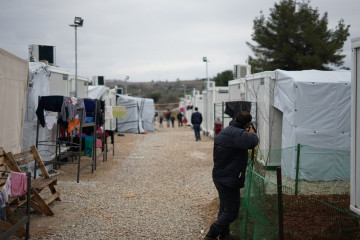

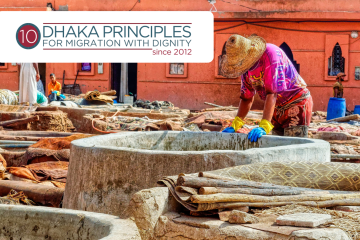
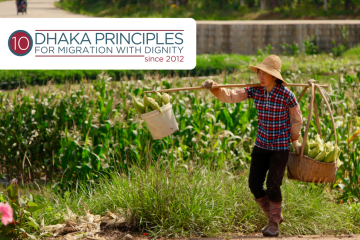






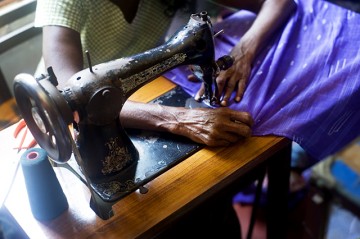
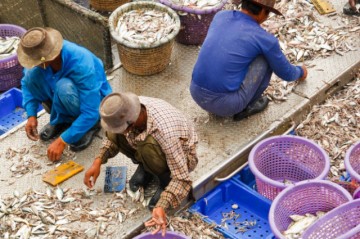

Why Business Might Thwart the UK Government’s Rwanda Asylum Export Plan
The recently announced plan to forcibly export asylum seekers from the UK to Rwanda is, according to UNHCR, likely also to be illegal under international law. States which are party to the 1951 UN Refugee Convention cannot legally derogate from...
13 May 2022 | Commentary
Commentary by John Morrison, Chief Executive, IHRB